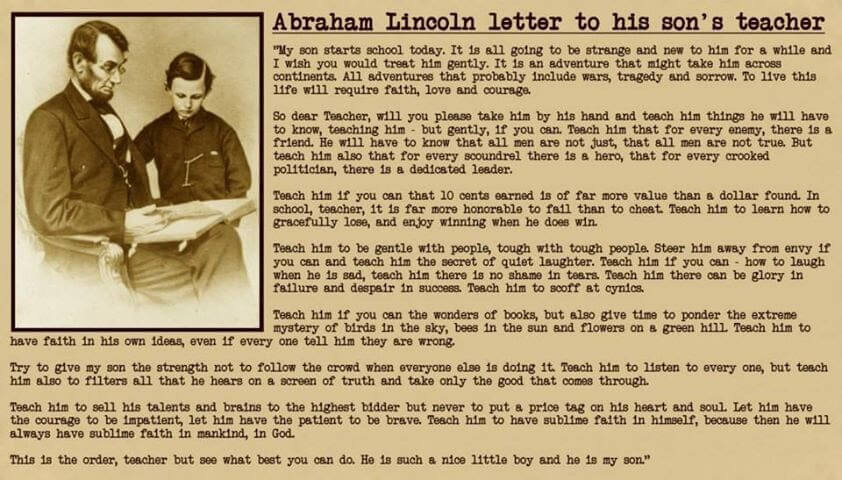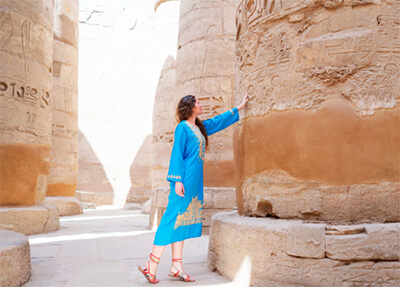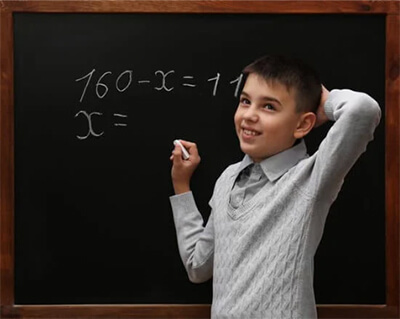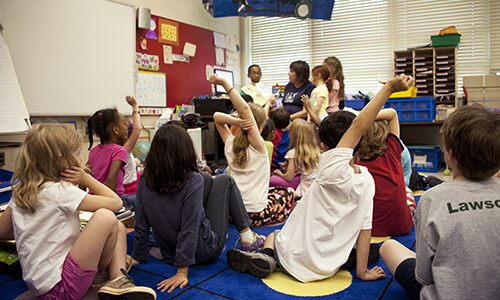Child-like Wonder – something we are all born with, yet just a handful of us keep this alive as we age into the autumn years of our lives. Having said that, I do believe that is it easier for people in education, especially school education, to keep this flame burning for a long time all due to our magical, curiosity and wonder filled times with students around us!

So, Teachers, every year, as you begin a new Academic year, you would probably be looking forward to welcoming and embracing the new bunch of little wonders who will be attending school with you for a good 220 days or so! Some of the 3-year-old toddlers would be attending school for the first time! Also, every parent handing over their child to you would be living through the anxious moments of releasing the little ones into your care, hoping their child settles in comfortably, sans emotional trauma, and enjoys 12-15 years of a memorable, exciting and life-changing journey at school, unravelling the mysteries of the world and life at large.
Imagine each parent writing you a personalised letter – the way Abraham Lincoln wrote to his son’s school teacher (here it is to refresh your memory):

That letter was written decades ago; however, its essence holds true even today! Like Lincoln, what would present-day Parents truly want to share in their letter to YOU – their child’s mentor, teacher, friend, guide for the journey ahead? We reproduce here – the introductory section of what a parent (Tracy Ann Clark) wrote to her son’s first teacher:
“Dear Teacher,

My son saw his first snow last winter. He stuck his little face straight up in the air and squealed with delight when he felt the cold, soft flakes against his skin. The white, feathery bits swirled around and then slowly floated down towards his outreached hands against the backdrop of deep grey, Texas skies. His eyes filled with pure wonder at the sights, sounds, touch, and taste of it all.
There in that moment I thought about YOU, his ‘future teacher’. I thought about all the pressures, requirements, and agendas you are bombarded with. I thought about the big tests and the consuming reality of preparing for these snapshots of my child’s supposed learning. I thought about how you might even be told to ignore what you (and brain research) know(s) about how my son learns best.
I thought about the precious and fragile gifts I see in my child today: pure wonder, joy, and curiosity. And I’d like to share with you from my perspective, as a parent, as a former teacher, and current learner, what I think really matters.”
Have you thought about what really matters? It is important for Teachers and Parents as Partners in Education to share with each other and understand from each other, what REALLY matters – in life and in the growing years of a student.
Continuing here, are the points that Tracy Ann Clark listed for her son’s Teacher (quote – unquote), which is relevant for every educator today and always:
 1. BELIEVE IN MY CHILD, BEYOND WHAT YOU CAN SEE
1. BELIEVE IN MY CHILD, BEYOND WHAT YOU CAN SEE
Believe my child can do more than remember the order of the planets and recite the year Columbus sailed the ocean blue. Believe that he can think in new ways, even if you haven’t seen it yet. Believe he can grow and not be defined by last year’s teachers’ notes or those black, pink and blue cards that sum up a year of behaviour with numbers or stickers or pluses and minuses. I want you to be a downright crazy idealist when it comes to what my child can do. You might be surprised when he rises to the challenge.
2. BELIEVE IN YOURSELF, BEYOND WHAT YOU THINK YOU CAN LEARN

Believe in your ability to meet his needs. Learn new strategies when something just isn’t working. I’m not sure where we internalized the assumption that teachers should know everything, but it is just that – a false assumption!
I’d much rather you realize and model the value of on-going curiosity and growth in your own life, and watch the beautiful overflow of passionate learning spill into your interactions with my son and your other students.
3. STOP PLAYING SCHOOL
Have you ever thought about the fact that my son’s birthdate, an arbitrary number on the calendar, determines when he is deemed ready for multiplication or solving chemical equations? I want you to question everything: Does my son need to sit in a desk in a row? Does he need to raise his hand to respond? Is this whole thing really working? If the answer to that last one is no, then stand up and change it. I’ve got your back!
4. VALUE CURIOSITY OVER COMPLIANCE

Learning is messy. Learning doesn’t always look civilized. Curiosity and student interest don’t usually fit inside a pre-packaged curriculum. What do your actions show my son that you value most? Are you so busy telling him to be quiet, or get in line, or hurry up, that you miss the caterpillar he is crouched around, trying to help it across the sidewalk? Please don’t show my son that school is a place for compliance over curiosity. It isn’t about colouring inside the lines. And here is a-not-so-secret-secret, my son’s future employers agree. Our world needs more creatives than cogs. Do we want well-behaved students or world-changing students?
5. VALUE PROCESS OVER PRODUCT
I know it is a lot more work to get out the rice bins, water table, and gallon containers to let him explore capacity for himself. I know water might spill and those grains of rice are killer to clean up when they overflow and find their way into every nook and cranny. But I really care about the experience and so does he. My son needs to touch and feel and shake and sort and measure.

My son needs to stomp and jump and run and fall and dust his knees off. My son needs to ask questions and read about things he loves and write about moments he treasures. He needs to persevere through a challenging problem and experience the satisfaction of finding an answer not because the answer is the point, but because of the learning he is constructing along the way.
So, let my son ‘create’ without a bunch of rules and a model product. I know it feels like everyone else has the perfect cookie cutter wall displays. I know it feels like all the other classrooms look ‘Pinterest-perfect’. But does HIS model flower need to look exactly like all the others? What does this prove my child can do anyway? Follow directions, conform, copy. I want more for him. I think YOU do too. If they all look the same, then you’ve got a recipe, not creativity.
6. ADOPT A POSTURE OF EXPERIMENTATION
If my son can’t try something and fail at school then where can he? Nurture a culture of thinking where it’s okay to make mistakes. A space where my son can develop the thinking dispositions of a scientist and an entrepreneur as he explores and experiments and figures things out by himself.
YOU can be a model of this every day as you innovate, iterate, and learn alongside him. I don’t want him to be afraid. Maybe he won’t take on the same fear of failure most of us adults have, because all he knows is that failure is part of the learning process.
7. MAKE ROOM FOR ‘HIM’ IN THE CURRICULUM
Right now, my son’s world is all about the colour red and giraffes. Next week it might be dinosaurs and things with wheels. Help my son see himself in the curriculum. Talk to him about what HE is interested in, what HE wonders, what HE wants to find out. Design learning that takes HIM into account and makes information accessible. Take the time to respond to HIS questions, or provide a place for him to explore them on HIS own. Show him that learning isn’t confined to the time and space of the classroom or the scope and sequence-and guide him where to go when he is hungry for more.

Right now, it is easy to see with fresh eyes as he explores the world around him. Everything is new, everything is a first. Everything is a surprise. He is never bored, because the world is incredible and it is his to discover. Maybe that is part of why he is such an exceptional learner right now. With YOUR help we will see the same look of wonder when he devours a good story, writes a killer poem, comes up with a new way to solve a problem, or combines two chemicals.
So, dear Teacher, I need you to partner with me and protect the precious, fragile gift of ‘wonder’ and ‘child-like imagination’, because that is the key to learning and it is really hard to get back once it is lost.
Isn’t that a lovely letter? Does it not encapsulate the real matters that education should focus on? To foster and nurture an environment that retains the wonder of newness, discovery, questions, self-discovery, magic, creativity, breaking old moulds? The child-centricism? The opportunity and space for spills and errors; of not being judged or being coaxed into a standardised cloned mould? A space to be free, to dream, to find one’s uniqueness and to just BE?
To revive the power of child-like wonder & imagination among teachers and to sustain it in our students as a lifelong skill, Team QEDRAK shares below some favourite videos on the same topic – do view them and become a child all over again!


